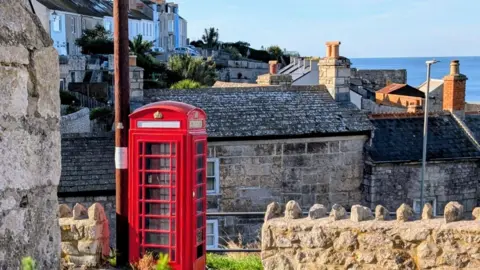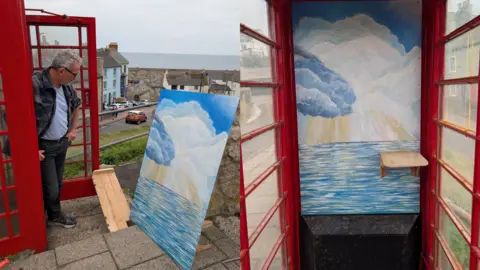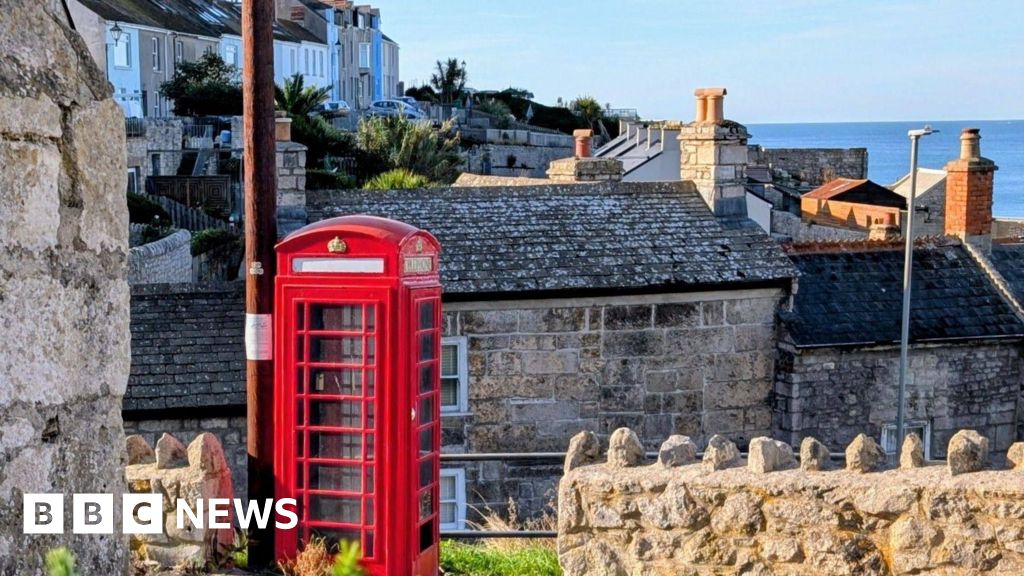Sophie CridlandSouth of England
 Portland Wind Phone
Portland Wind PhoneA group of artists and volunteers are using a disconnected public phone to help people cope with bereavement and loss.
Known as wind phones – an idea that started in Japan – they give the chance to have a one-sided conversation with people who have died with the words being carried to them “on the wind”.
An old-fashioned rotary phone is to be installed in a red telephone box on Mallams on Portland, Dorset.
Leading artist, Antje Rook, said “Grieving is like suffering a trauma and it’s a very difficult time for people so through research we found this really helped.”
Wind phones are found all over the world but the one on Portland is the first of its kind in Dorset. It is placed on top of a hill overlooking the sea.
“The location of a wind phone is important” Antje said.
“This is fairly quiet but this is a spot where a lot of people pass and it has a nice view.”
She said the group have been exploring and researching about death since January.
“I am looking forward to death and I think it must be the most interesting and amazing experience.
“It was quite controversial in the group because most people are scared of it but it is a part of life.”
The installation is part of a project called The Final Journey and is an exploration of death and dying through art.
It is being funded by a grant from the Weymouth and Portland Towns of Culture initiative.
 Portland wind phone.
Portland wind phone.The first wind phone was created in Japan by Itaru Sasaki while grieving for his cousin who died of cancer.
He installed an unconnected rotary phone into an old-fashioned phone booth and set it up in his garden.
When a tsunami hit the country in 2011 a number of similar booths were installed to help thousands of people grieve the loved ones they had lost.
The artists and volunteers on Portland hope the wind phone will stay on Mallams for the foreseeable future.







